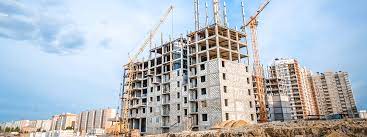Selling an under-construction property can be a complex process, but with the right approach, it can be a seamless and financially beneficial experience. Whether you’re looking to free up capital, reduce financial commitments, or simply explore other investment opportunities, selling an under-construction flat requires a detailed understanding of legal, financial, and procedural aspects. This blog will walk you through every step, covering all scenarios, challenges, and advantages to ensure you’re well-prepared.
Why Sell an Under-Construction Property?
Financial Relief
Unexpected financial constraints may push you to liquidate assets to reduce liabilities. Selling an under-construction flat before possession saves tax and minimizes long-term commitments.
Shifting Priorities
Personal or professional relocations, lifestyle upgrades, or different investment goals can make selling an under-construction flat a practical choice.
Market Value Appreciation
In booming real estate markets, selling an under-construction property could yield substantial returns due to property appreciation.
Understanding the Process of Selling an Under-Construction Property

Selling an under-construction flat involves specific steps to ensure compliance with laws, minimize taxes, and maximize profits.
Review the Builder-Buyer Agreement
Before proceeding, scrutinize the agreement with the builder. Check for clauses on resale of under-construction property and transfer of allotment. Some agreements may restrict the transfer of property before possession or levy transfer charges.
Obtain the Builder’s No-Objection Certificate (NOC)
Most builders require sellers to secure an NOC before transferring the property to another buyer. The NOC ensures the sale complies with legal and contractual obligations.
Find a Suitable Buyer
Start looking for buyers interested in purchasing an under-construction flat. Platforms like Housiey connect buyers directly with sellers, ensuring a hassle-free process without middlemen.
Legal Documentation
- If the property is unregistered, confirm whether you can sell an under-construction flat before registration by consulting legal experts and checking local regulations.
- For properties registered in states like Maharashtra, verify can we sell under-construction flat after registration in Maharashtra, as it requires adherence to the Maharashtra Real Estate Regulatory Authority (MahaRERA) rules.
Transfer the Allotment
Once the buyer is finalized, initiate the transfer of allotment. This process includes signing transfer documents and updating the buyer’s details with the builder.
Pay Applicable Taxes
Selling an under-construction property can attract taxes, such as:
- Capital Gains Tax: The capital gain on sale of property before possession depends on the property’s holding period.
- GST: The sale of under-construction property GST is applicable on specific transactions. Consulting a tax advisor can help mitigate liabilities.
Legal and Tax Implications of Selling an Under-Construction Property

Capital Gains Tax
- Short-term capital gains apply if the property is sold within two years of allotment.
- Long-term capital gains apply after two years and are taxed at a lower rate.
Income Tax
The income tax on sale of under-construction property depends on factors like sale price, cost of acquisition, and indexation benefits.
GST on Resale
Understanding GST on resale of under-construction property is crucial. While GST is not applicable on completed properties, under-construction properties attract GST based on the sale value.
Regulatory Compliance
Each state may have unique regulations. For instance:
- In Maharashtra, refer to MahaRERA rules to determine resale conditions.
- Inquire about the sale of under-construction property capital gain benefits available.
Challenges of Selling an Under-Construction Property

Builder’s Restrictions
- Builders may restrict transfers until possession or impose hefty charges for approval.
Limited Buyer Pool
- Buyers may prefer completed properties over under-construction ones, making it challenging to find buyers.
Market Fluctuations
- Economic downturns or changes in government policies can affect property values, reducing your profit margin.
Key Advantages of Selling Under-Construction Properties
- Tax Savings
Selling under-construction flat before possession saves tax, making it a strategic decision for those facing financial strain.
- High Demand for Affordable Housing
Buyers often find under-construction resale flats cheaper than new projects, ensuring a steady demand.
- Flexible Payment Terms
Sellers can negotiate payment terms with potential buyers, making the process more attractive.
Practical Tips for a Smooth Sale

- Consult Legal Experts
Always seek legal advice to navigate regulatory hurdles and tax implications.
- Set a Competitive Price
Research market rates and offer a competitive price to attract buyers quickly.
- Work with Reputed Platforms
Use trusted platforms like Housiey to connect with genuine buyers and simplify the selling process.
- Highlight Benefits to Buyers
Emphasize the advantages of buying an under-construction resale flat, such as flexible payment terms and potential appreciation.
Conclusion
Selling an under-construction property requires strategic planning, a deep understanding of regulations, and careful handling of legalities. Whether you’re looking to reduce financial commitments, relocate, or capitalize on market appreciation, following the right approach ensures a smooth and profitable transaction. Platforms like Housiey can simplify the process by connecting you with genuine buyers, ensuring transparency and hassle-free execution.
Don’t forget to check out our blog on “Feng Shui Bells” to add harmony and prosperity to your home.
FAQs
Selling an under-construction property can be a complex process, but with the right approach, it can be a seamless and financially beneficial experience. Whether you’re looking to free up capital, reduce financial commitments, or simply explore other investment opportunities, selling an under-construction flat requires a detailed understanding of legal, financial, and procedural aspects. This blog will walk you through every step, covering all scenarios, challenges, and advantages to ensure you’re well-prepared.
Why Sell an Under-Construction Property?
Financial Relief
Unexpected financial constraints may push you to liquidate assets to reduce liabilities. Selling an under-construction flat before possession saves tax and minimizes long-term commitments.
Shifting Priorities
Personal or professional relocations, lifestyle upgrades, or different investment goals can make selling an under-construction flat a practical choice.
Market Value Appreciation
In booming real estate markets, selling an under-construction property could yield substantial returns due to property appreciation.
Understanding the Process of Selling an Under-Construction Property

Selling an under-construction flat involves specific steps to ensure compliance with laws, minimize taxes, and maximize profits.
Review the Builder-Buyer Agreement
Before proceeding, scrutinize the agreement with the builder. Check for clauses on resale of under-construction property and transfer of allotment. Some agreements may restrict the transfer of property before possession or levy transfer charges.
Obtain the Builder’s No-Objection Certificate (NOC)
Most builders require sellers to secure an NOC before transferring the property to another buyer. The NOC ensures the sale complies with legal and contractual obligations.
Find a Suitable Buyer
Start looking for buyers interested in purchasing an under-construction flat. Platforms like Housiey connect buyers directly with sellers, ensuring a hassle-free process without middlemen.
Legal Documentation
- If the property is unregistered, confirm whether you can sell an under-construction flat before registration by consulting legal experts and checking local regulations.
- For properties registered in states like Maharashtra, verify can we sell under-construction flat after registration in Maharashtra, as it requires adherence to the Maharashtra Real Estate Regulatory Authority (MahaRERA) rules.
Transfer the Allotment
Once the buyer is finalized, initiate the transfer of allotment. This process includes signing transfer documents and updating the buyer’s details with the builder.
Pay Applicable Taxes
Selling an under-construction property can attract taxes, such as:
- Capital Gains Tax: The capital gain on sale of property before possession depends on the property’s holding period.
- GST: The sale of under-construction property GST is applicable on specific transactions. Consulting a tax advisor can help mitigate liabilities.
Legal and Tax Implications of Selling an Under-Construction Property

Capital Gains Tax
- Short-term capital gains apply if the property is sold within two years of allotment.
- Long-term capital gains apply after two years and are taxed at a lower rate.
Income Tax
The income tax on sale of under-construction property depends on factors like sale price, cost of acquisition, and indexation benefits.
GST on Resale
Understanding GST on resale of under-construction property is crucial. While GST is not applicable on completed properties, under-construction properties attract GST based on the sale value.
Regulatory Compliance
Each state may have unique regulations. For instance:
- In Maharashtra, refer to MahaRERA rules to determine resale conditions.
- Inquire about the sale of under-construction property capital gain benefits available.
Challenges of Selling an Under-Construction Property

Builder’s Restrictions
- Builders may restrict transfers until possession or impose hefty charges for approval.
Limited Buyer Pool
- Buyers may prefer completed properties over under-construction ones, making it challenging to find buyers.
Market Fluctuations
- Economic downturns or changes in government policies can affect property values, reducing your profit margin.
Key Advantages of Selling Under-Construction Properties
- Tax Savings
Selling under-construction flat before possession saves tax, making it a strategic decision for those facing financial strain.
- High Demand for Affordable Housing
Buyers often find under-construction resale flats cheaper than new projects, ensuring a steady demand.
- Flexible Payment Terms
Sellers can negotiate payment terms with potential buyers, making the process more attractive.
Practical Tips for a Smooth Sale

- Consult Legal Experts
Always seek legal advice to navigate regulatory hurdles and tax implications.
- Set a Competitive Price
Research market rates and offer a competitive price to attract buyers quickly.
- Work with Reputed Platforms
Use trusted platforms like Housiey to connect with genuine buyers and simplify the selling process.
- Highlight Benefits to Buyers
Emphasize the advantages of buying an under-construction resale flat, such as flexible payment terms and potential appreciation.
Conclusion
Selling an under-construction property requires strategic planning, a deep understanding of regulations, and careful handling of legalities. Whether you’re looking to reduce financial commitments, relocate, or capitalize on market appreciation, following the right approach ensures a smooth and profitable transaction. Platforms like Housiey can simplify the process by connecting you with genuine buyers, ensuring transparency and hassle-free execution.
Don’t forget to check out our blog on “Feng Shui Bells” to add harmony and prosperity to your home.
FAQs









